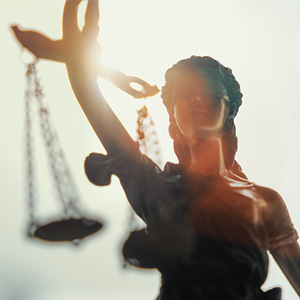D.C. Bar Global Legal Practice Committee Seeks Public Comment on Rule of Professional Conduct 5.4
January 23, 2020
The D.C. Bar Global Legal Practice Committee (GLPC) is studying and seeking feedback on the changing models for obtaining and delivering legal services in the United States and abroad, including alternative business structures (ABS) and multidisciplinary practice (MDP). The deadline for comments is close of business Monday, March 9, 2020.
ABS is a legal service business model that is different from the traditional law firm structure and may include external investment in a law firm, nonlawyer ownership of a law firm, or other ways to offer legal services outside traditional models. ABS may allow for the provision of certain types of legal services by nonlawyers. Multidisciplinary practice is a type of ABS firm that provides both legal and non-legal services.
Several foreign countries permit ABS and/or MDP firms. However, in the United States each jurisdiction’s version of Rule 5.4(a) generally prohibits lawyers from sharing fees with nonlawyers, and Rule 5.4(b) restricts lawyers from forming partnerships with nonlawyers. The District of Columbia is the only jurisdiction in the United States that has adopted a modified Rule 5.4(b), which permits lawyers to form partnerships with nonlawyers in limited circumstances.
Under D.C.’s Rule 5.4(b), a lawyer may practice law in an organization with a nonlawyer partner, provided that: (1) the nonlawyer performs professional services which assist the organization in providing legal services to clients; (2) the organization’s sole purpose is providing legal services to clients; (3) the nonlawyer undertakes to abide by the Rules of Professional Conduct; (4) the lawyers who have a financial interest or managerial authority in the partnership or organization undertake to be responsible for the nonlawyer participants to the same extent as if nonlawyer participants were lawyers under Rule 5.1; and (5) the foregoing conditions are set forth in writing.
Currently, several U.S. jurisdictions are exploring potential changes to their respective Rule 5.4(b) that would either mirror that of the District’s rule or expand or eliminate the rule altogether to allow lawyers and nonlawyers to form ABS or MDPs.
As part of its study, the GLPC is requesting comment from Bar members about the following issues:
- For those firms that have nonlawyer partners, how has D.C.’s existing Rule 5.4(b) permitting D.C. law firms to have nonlawyer owners been beneficial in providing services to clients? Has the option to offer partnership to nonlawyer professionals been beneficial in retaining skilled and experienced nonlawyer professionals such as mental health professionals, medical doctors or nurse practitioners, economists, lobbyists, accountants, and law firm managers and executive directors?
- Are the circumstances under which a D.C. Bar member may practice with a nonlawyer partner under Rule 5.4(b) too restrictive? Have these restrictions prevented you from establishing a practice with a nonlawyer that you otherwise would have done?
- How could your firm benefit if it were permitted to share fees with nonlawyers? Do you think that allowing for outside investment could increase capital or offer greater financial security for your firm? Would this lead to better or more efficient service to your clients or investment in innovation through technology?
- Is there a demand from your clients for legal services that are integrated with other non-legal professional services? Would your firm collaborate with other professionals to form an MDP if Rule 5.4 were amended to allow it? Have you or your firm lost business or clients because of the inability to offer integrated professional services?
- If your firm currently utilizes third-party litigation funding, or is interested in doing so, what would be the impact of a rule change that permits either fee-sharing with nonlawyers or a less restrictive ownership interest by nonlawyers?
- If the fee-sharing and nonlawyer ownership provisions of Rule 5.4 were more permissive, should lawyer partners continue to be responsible for the actions of nonlawyer partners as set forth in existing Rule 5.4(b)? Should the Rules of Professional Conduct apply to the nonlawyer partners, including disciplinary prosecution and sanctions for violations of the rules? Or, should there be a different regulatory structure specific to nonlawyers?
- If D.C.’s existing Rule 5.4 should not be changed, why not?
The Committee’s intention is that any publication referencing comments received in response to this request will paraphrase or summarize them and will not include details that would identify individual commenters, regardless of whether feedback is submitted in an individual’s capacity or on behalf of a group or organization.
Feedback, comments, and suggestions should be sent by mail or email by close of business on Monday, March 9, 2020, to:
Global Legal Practice Committee
District of Columbia Bar
901 4th Street NW
Washington, DC 20001
Attention: Adriana Goss-Santos
[email protected]
202-780-2774
The Committee’s recommendations (if any) are forwarded to the D.C. Bar Board of Governors, which in turn decides whether to forward such recommendations to the D.C. Court of Appeals for its consideration. Changes to the rules are made only by the Court of Appeals.
Are you an active D.C. Bar member in private practice who practices with nonlawyer partners? If so, please take our upcoming short anonymous and confidential online survey.





